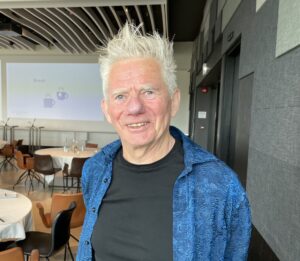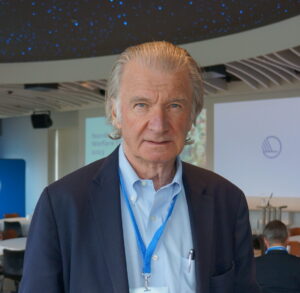Confronting global challenges: Can the Nordic welfare state hold its ground?
Welfare policy
15 Aug 2023
In a time defined by escalating global threats such as inequality, conflicts and climate change, the focus of the Nordic Welfare Forum 2023, held in Reykjavik, was the resilience of the Nordic welfare state. This article summarises a panel discussion centred on whether globalisation poses a threat to the Nordic welfare model.
The Nordic welfare state, often regarded as an equaliser and redistributor that alleviates poverty and inequality, assumes increased significance in crisis situations. Sociology Professor Stefán Ólafsson from the University of Iceland observes that the resilience of Nordic societies in crisis situations is often undervalued.
– In both economic downturns and health crises, the Nordic welfare state acts as a cushion for the most vulnerable groups in society. Financial hardship usually escalates due to short-term government policies, not the structure of the welfare state itself, says Ólafsson.
Nonetheless, the Nordic welfare model faces its own set of challenges, particularly in an increasingly globalised world.
– Globalisation, heavily influenced by neoliberal ideologies, often portrays the government as an obstacle rather than a solution. This perception has constrained the capacity of the Nordic welfare state and distracted its politicians, argues Ólafsson.

Karl Ove Moene, Professor at the Department of Economics at the University of Oslo, suggests that the Nordic countries could benefit greatly from globalisation. Smaller, open economies hold an advantage over larger nations where competition is mostly internal.
– Globalisation is not a threat. In a generous welfare state, the gains from free trade are more evenly distributed amongst the population. This is why people in the Nordic countries generally do not fear globalisation, says Moene.
Redefining trade: Balancing environmental costs in a climate crisis
Amid recent global challenges, such as the Covid-19 pandemic, the ongoing war in Ukraine, increased military spending in neighbouring countries, and high energy prices and inflation in Europe, the climate crisis still overshadows all.

According to Anders Wijkman, honorary chairman of the global think tank Club of Rome who also participated in the discussion, economists often underestimate this issue, both in Nordic countries and elsewhere.
– If you ask a traditional economist about the primary factors contributing to an increase in the standard of living, they’ll likely list labour quality, a skilled workforce, financial capital, and innovation. They tend to view nature as a constant.
Anders Wijkman argues that while the Nordic countries may benefit from free trade many poor nations do not.
Professor Karl Ove Moene also states that today’s global trade inadequately considers pollution.
– At the moment, the environmental impact of the transport of goods isn’t factored into the price. We need to redefine value creation to account for the environmental cost, then redistribute the benefits amongst everybody. Sensible free trade where pollution is accounted for is good for everybody, including the poor, says Moene.
A ten thousand dollar question
All speakers agree that environmental issues should hold more weight in policy-making within the Nordic countries. Nevertheless, convincing a finance ministry to shift its focus from conventional economics to a more ecological approach is far from simple. Anders Wijkman refers to this as the ‘ten thousand dollar question’.
– It’s challenging for a single country to undergo these transformations alone. The EU could be a frontrunner, establishing a level playing field for all member states, says Wijkman.
Professor Stefán Ólafsson believes that politicians are generally not aware of the capabilities of the welfare state in mitigating crises, including the climate crisis, as politics tends to be too short-term focused.
– I think politicians are too focused on the prevailing ideological currents. On the other hand, there are not one but many ways to build a welfare state, says Ólafsson.
Text: Sebastian Dahlström
Title picture: Moderator Thóra Arnórsdóttir with panelists Karl Ove Moene, Stefán Ólafsson, Eva Svedling and Anders Wijkman
Related news
Disability issues
7 May 2024
Webinar: Knowledge sharing and networking in the social sector across the Nordic countries
Welfare policy
27 Sep 2023
